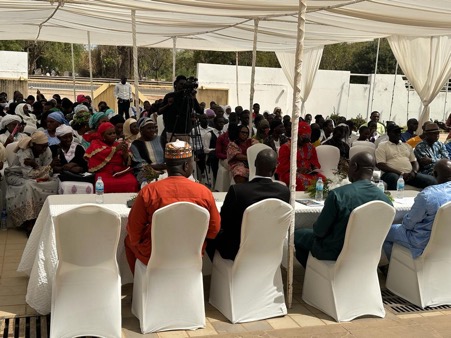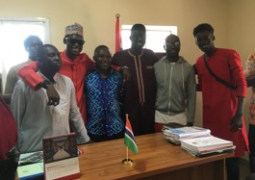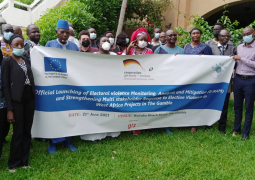
The Open Day is an official platform aimed at presenting to the public the distinctive history, role and activities, alongside the challenges and achievements, of the National Assembly.
Buba M.E. Jatta, the Deputy Clerk of Administration and Finance at the National Assembly, underscored the importance of the day, urging people to use it as a platform to explore the Parliament and learn about the institution’s key responsibilities of legislation, oversight, and representation.
“The occasion is a public event intended for stakeholders from both central and local government, development partners, media, civil society, schools and the public to interact with both Honorable Members and staff of the National Assembly and discuss issues regarding the mandate and functions of the legislature.” he said.
Jatta expressed optimism that increased popular participation and involvement would lead to a better understanding and appreciation of the work and role of the Assembly and NAMs (National Assembly Members), thus ultimately helping to address some of the challenges the legislature faces.
Seedy S.K. Njie, deputy Speaker of the National Assembly, outlined several of the activities undertaken by the assembly.
“The 6th Legislature has passed several laws such as the Anti-Corruption Bill, the Mutual Legal Assistance Bill, Prohibition of Torture Bill, among others to improve the collective wellbeing of all Gambians. Whilst performing oversight over the executive, both the Standing and Select Committees have performed remarkably well.”
Deputy Speaker however remarked that the social sector committees such as Education, Health and Agriculture as well as accountability Committees like the Finance and Public Accounts Committee are making great strides through parliamentary oversight to contribute to the broader goals of alleviating poverty and promoting development.
Representing the Westminster Foundation for Democracy, Ousman Jallow, acknowledged that democracy is fundamental in addressing the major challenges of our time.
He also underscored the importance of three key pillars – inclusion, transparency, and accountability – in fostering a fairer and more inclusive society.
“We hope participants here and those following online will come to learn more about the workings and processes of the National Assembly and that today will form a basis for future interest and engagement with parliamentary work. It is only through popular participation by an informed citizenry that we can enhance and strengthen democracy.” he stated.
Renowned Gambian historian, Hassoum Ceesay gave an insight into the history and functions of the National Assembly in The Gambia.
During the event, visitors were guided on a tour of the National Assembly Building.




